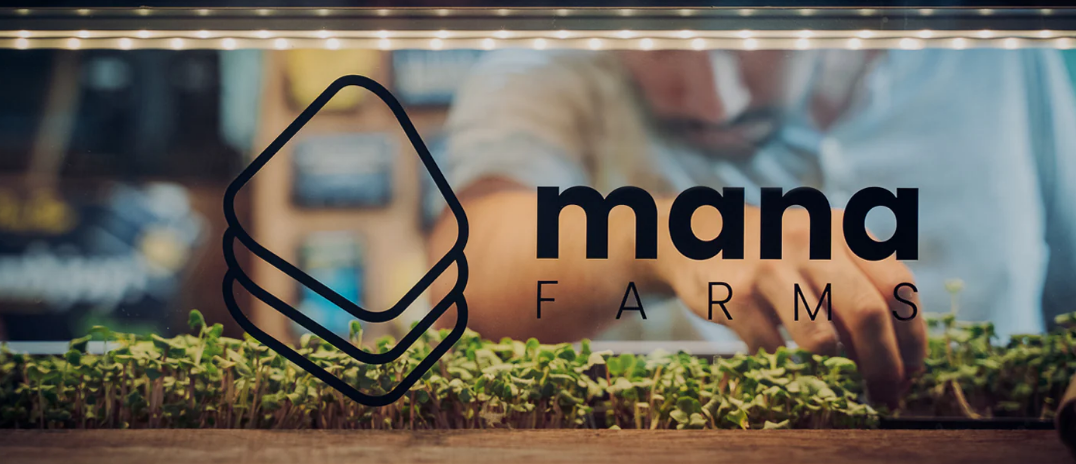Mana Farms uses innovative vertical farming techniques to provide fresh, healthy, and sustainable produce to health-conscious and environmentally conscious consumers. Our locally grown produce is sold through farmer’s markets, e-commerce, and wholesale to restaurants and cafes.
Are you tired of worrying about where your produce comes from and how it was grown? Do you want to support your local economy and reduce your environmental impact? Mana Farms has the solution for you.
Our innovative vertical farming techniques allow us to grow a variety of crops year-round, maximizing yield and reducing environmental impact. We provide fresh, healthy, and sustainably grown produce to health-conscious and environmentally conscious consumers, as well as restaurants and cafes looking for high-quality, locally grown produce.
Our key metrics include customer acquisition cost, customer lifetime value, revenue per customer, yield per square foot of farming space, cost per pound of produce grown, and number of new customers acquired per month.
Mana Farms’ solution is a good fit for health-conscious and environmentally conscious consumers who value fresh, sustainably grown produce. Restaurants and cafes can benefit from having a reliable source of high-quality, locally grown produce.
Our channels include local farmer’s markets, direct-to-consumer sales through e-commerce, and wholesale to restaurants and cafes. Our cost structure includes capital expenses for building and equipping the vertical farm facility, operating expenses for maintaining and running the facility, and marketing and advertising expenses. Our revenue streams include sales of produce through farmer’s markets and e-commerce, as well as wholesale sales to restaurants and cafes.
Mana Farms’ innovative vertical farming techniques provide a competitive advantage in terms of yield and sustainability. Our focus on locally grown produce appeals to consumers who value supporting their local economy and reducing food miles. Trust Mana Farms to provide fresh and sustainable produce that you can feel good about consuming.
Lean Canvas Mana Farms’
Problem:
– There is a growing demand for locally grown, pesticide-free produce.
– Consumers are increasingly interested in sustainable agriculture.
Unique Value Proposition:
– Mana Farms provides fresh, healthy, and sustainably grown produce to consumers.
– Mana Farms uses innovative vertical farming techniques to maximize yield and reduce environmental impact.
Solution:
– Mana Farms will build a vertical farm facility in a convenient location.
– The facility will use hydroponic and aeroponic systems to grow a variety of crops year-round.
– The produce will be sold through local farmer’s markets and directly to restaurants and consumers.
Key Metrics:
– Customer acquisition cost
– Customer lifetime value
– Revenue per customer
– Yield per square foot of farming space
– Cost per pound of produce grown
– Number of new customers acquired per month
Customer Segments:
– Health-conscious individuals
– Environmentally conscious consumers
– Restaurants and cafes looking for fresh, locally grown produce
Customer Fit:
– Mana Farms’ solution is a good fit for health-conscious and environmentally conscious consumers who value fresh, sustainably grown produce.
– Restaurants and cafes can benefit from having a reliable source of high-quality, locally grown produce.
Channels:
– Local farmer’s markets
– Direct-to-consumer sales through e-commerce
– Wholesale to restaurants and cafes
Cost Structure:
– Capital expenses for building and equipping the vertical farm facility
– Operating expenses for maintaining and running the facility
– Marketing and advertising expenses
Revenue Streams:
– Sales of produce through farmer’s markets and e-commerce
– Wholesale sales to restaurants and cafes
Unfair Advantage:
– Mana Farms’ innovative vertical farming techniques provide a competitive advantage in terms of yield and sustainability.
– Mana Farms’ focus on locally grown produce appeals to consumers who value supporting their local economy and reducing food miles.
